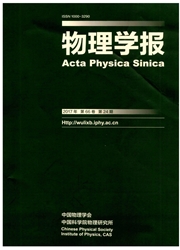

 中文摘要:
中文摘要:
送气成像(gas puff imaging,GPI)是一种重要的研究边缘辐射诊断手段.分析了送气(gas puffing,GP)的原子分子过程,指出气体辐射的主要成分是Hα线,出现在边缘区域,并给出其强度和位置的表达式.介绍HL-2A托卡马克上GPI成像系统的改进和实验布置.从成像的角度获得了GP实验中氢气在等离子体空间的辐射图形,观察结果证实上述分析.在放电开始阶段,氢原子可以穿越待建立的完全等离子体区并形成长条形的辐射亮区.一般的GP加料中,CCD图片与控制信号,以及其他诊断结果相符合.在等离子体边缘区域强场侧(HFS)和弱场侧(LFS)都观察到很强的Hα线辐射.
 英文摘要:
英文摘要:
GPI (gas puff imaging) is one of the important diagnostics method for investigation of the radiation in the edge region of plasma. In this paper, atomic and molecular processes during GP (gas puff) passage are analyzed. The main radiation emitting from the gas is identified as the Ha line, appearing on the plasma edge region, and the expressions of its intensity and location are given. As viewed from imaging angle, space radiation photograph of hydrogen gas during the GP was obtained experimentally. Improvements of the imaging system and GP experiment arrangement on the HL-2A tokamak are introduced. The observation results confirm the above analysis. In the beginning stage of plasma, the GP hydrogen atoms can pass through the region where the plasma column is to be set up and the bright strip region is formed. In the general GP fuelling, CCD photos are in accordance with the control signals, and other diagnostic results. The strong Ha emissions in both the HFS and LFS sides of plasma are observed.
 同期刊论文项目
同期刊论文项目
 同项目期刊论文
同项目期刊论文
 期刊信息
期刊信息
